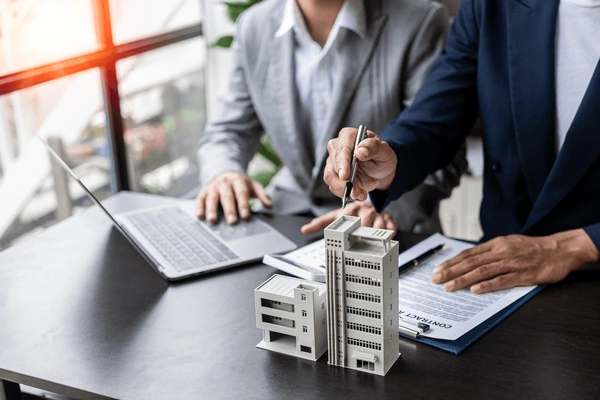The Building LEW Revolution: How Singapore’s Electrical Oversight is Reshaping Commercial Property Management

Building LEW professionals represent the vanguard of Singapore’s sophisticated approach to electrical infrastructure management, yet their critical role remains largely invisible to property owners and tenants alike. This specialised cadre of Licensed Electrical Workers operates at the intersection of regulatory compliance and commercial property management, wielding authority that extends far beyond traditional electrical maintenance into the realm of building-wide safety coordination. Their emergence reflects Singapore’s methodical response to the complex electrical challenges posed by dense urban development and increasingly sophisticated building systems.
Understanding the Building LEW Framework
The building LEW system emerges from Singapore’s recognition that modern commercial properties require specialised electrical oversight that transcends individual unit boundaries. Unlike conventional electrical workers, building LEWs manage the intricate electrical connections binding multi-tenanted properties into safely operating entities.
Key responsibilities include:
- Managing building’s main electrical infrastructure from high-voltage supply to tenant distribution
- Coordinating between Singapore Power Grid, Energy Market Authority, and tenant electrical systems
- Creating hierarchical safety structures ensuring comprehensive electrical oversight
- Implementing systematic, preventive approaches to electrical safety management
Critical Functions of Building LEW Services
The scope of building LEW responsibilities extends across numerous operational areas that property managers often underestimate until electrical issues arise. These professionals serve as electrical gatekeepers, controlling access to the building’s power infrastructure whilst ensuring compliance with evolving safety standards.
Tenant Electrical Integration and Approval
Building LEW services include comprehensive oversight of tenant electrical installations, ensuring safe integration with building infrastructure:
- Review and approval of tenant electrical designs before installation
- Coordination of CS3 applications for tenant electrical supply connections
- Verification that tenant electrical loads remain within building capacity limits
- Management of electrical supply turn-on procedures for new tenants
- Detailed analysis of power requirements and load distribution
- Assessment of potential impacts on other building systems
Building Electrical Infrastructure Management
Modern commercial buildings require sophisticated electrical management that goes beyond basic maintenance. Building LEW services encompass comprehensive oversight of:
- Main electrical distribution systems and switchgear operations
- High-voltage connections to Singapore Power Grid infrastructure
- Emergency power systems and backup generation equipment
- Building automation systems and integrated electrical controls
The complexity of these systems demands building LEW professionals who understand both technical electrical engineering and regulatory compliance requirements. Their decisions affect entire buildings, making their expertise crucial for maintaining operational continuity.
Regulatory Compliance and Documentation
Building LEW professionals manage extensive documentation requirements that demonstrate ongoing compliance with Energy Market Authority standards. This includes preparation and submission of electrical drawings, maintenance reports, and safety certifications that satisfy regulatory oversight.
As one experienced building electrical consultant observed: “Building LEW responsibilities in Singapore’s commercial sector have evolved far beyond basic electrical work—we’re essentially managing complex electrical ecosystems that require constant coordination between multiple stakeholders whilst maintaining absolute safety standards.”
Economic Implications of Building LEW Services
The financial impact of professional building LEW management extends throughout commercial property operations, affecting everything from insurance premiums to tenant satisfaction and property valuations.
Risk Mitigation and Insurance Benefits
Commercial properties with professional building LEW oversight experience:
- Significantly lower electrical incident rates
- Reduced insurance premiums and liability exposure
- Documented evidence of proper maintenance and compliance
- Clear accountability structures demonstrating due diligence
- Protection from liability claims affecting multiple tenants
Operational Efficiency and Tenant Relations
Properties with comprehensive building LEW oversight report improved tenant satisfaction due to reduced electrical disruptions and faster resolution of electrical issues. The systematic approach to electrical management enables predictive maintenance that minimises unexpected outages.
Building LEW professionals also streamline the process for new tenant fit-outs by providing clear electrical requirements and coordinating necessary approvals. This reduces delays and ensures that tenant electrical installations meet building standards from the outset.
The Evolving Regulatory Landscape
Singapore’s approach to building LEW regulation continues evolving in response to technological advancement and changing building requirements. Recent developments include enhanced documentation requirements, expanded oversight responsibilities, and integration with smart building technologies.
Integration with Smart Building Systems
Modern building LEW services increasingly involve integration with sophisticated building management systems that monitor electrical performance in real-time. These systems enable predictive maintenance approaches that identify potential issues before they affect building operations.
The regulatory framework is adapting to accommodate these technological advances whilst maintaining the fundamental safety principles that underpin Singapore’s electrical oversight system. Building LEW professionals must now understand both traditional electrical engineering and emerging smart building technologies.
Multi-Tenanted Building Complexity
The challenges of managing electrical systems in multi-tenanted buildings continue growing as tenant electrical requirements become more sophisticated. Building LEW professionals must coordinate between increasingly complex tenant installations whilst maintaining building-wide electrical stability.
This requires understanding of diverse electrical requirements, from high-power data centres to sensitive medical equipment, all operating within shared electrical infrastructure. The building LEW role involves continuous balancing of competing electrical demands whilst ensuring overall system integrity.
Future Developments in Building LEW Services
Singapore’s building electrical landscape faces ongoing transformation as smart city initiatives, renewable energy integration, and advanced building technologies create new challenges for building LEW professionals.
The regulatory authorities regularly update requirements to address emerging technologies and changing building practices. Building LEW professionals must maintain current knowledge of these developments whilst managing increasingly complex electrical systems.
Conclusion
The sophistication of Singapore’s building LEW framework reflects a broader commitment to systematic electrical safety that prioritises prevention over remediation. For commercial property owners and managers, understanding and implementing professional building LEW oversight isn’t merely regulatory compliance—it represents fundamental infrastructure management that affects property value, operational efficiency, and tenant satisfaction.
The complexity of modern building electrical systems makes professional oversight indispensable for maintaining safe, efficient operations. As Singapore’s commercial property sector continues evolving, the role of qualified building LEW professionals becomes increasingly critical for sustainable property management and long-term operational success.






